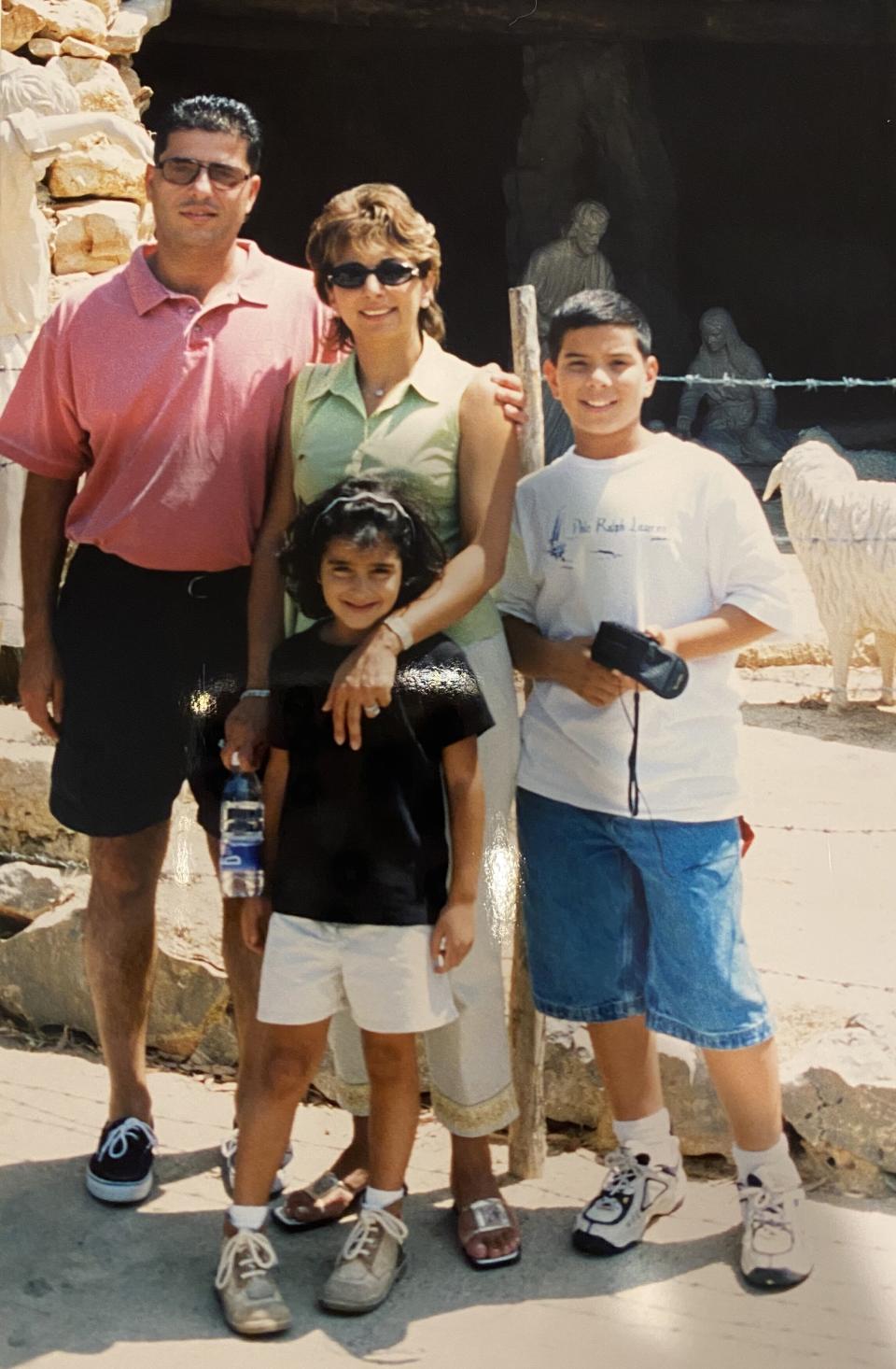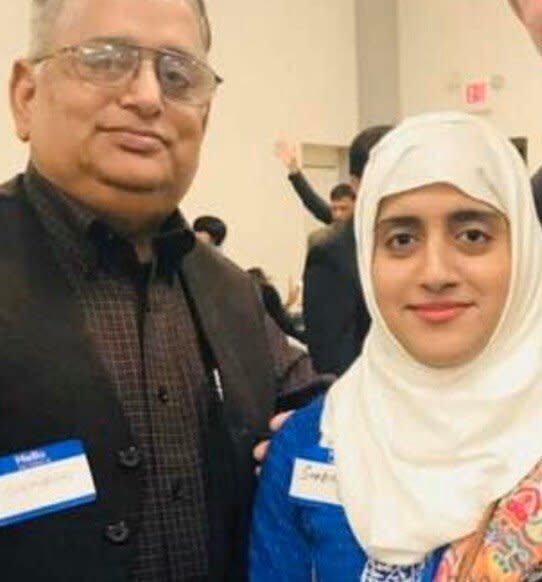Displaced Families Tap Into Survival Instincts To Tackle COVID-19 Outbreak
Danny Hajjar’s parents grew up during the Lebanese Civil War, a 15-year multi-faceted war that killed nearly 150,000 people and displaced thousands more between 1975 and 1990. During that time, they witnessed prices skyrocket, businesses shutter and tensions between families and friends run high. His family could not leave their home since waves of violence outside were common and unpredictable.
They finally made it to the U.S. in the 1980s. Even though they no longer lived in a war zone, Hajjar, a 29-year-old account executive at a communications firm in Washington, D.C., says his parents’ experience forever changed how they lived and dealt with any crisis that came their way ― including the coronavirus outbreak.
“I like to think that that has really just shaped everything they’ve done since then,” Hajjar told HuffPost. “My parents have always been prepared. They have very much been prepared for the worst, at all times.”
Now residing in Boston, Hajjar’s parents are prepared for anything, including the frequent power outages they face due to blizzards. Their house is always stocked up with batteries, board games, candles and canned goods ― including chickpeas, an Arab home staple. It was stocked well before even a whisper of the virus. Throughout his life, Hajjar’s parents constantly raised their children to be prepared. One such way meant they nagged him to carry cash for emergencies, a concept he said was foreign to him as a millennial.
“They’ve always had everything ready should a disaster strike,” said Hajjar. “I think, for me, it just all stems from the war. Just always being prepared for the worst and having everything at your disposal so that if you need to hunker down and not move and not do anything, you are in a space where you can kind of survive for a few days.”
For many families like Hajjar’s who have fled wars and political instability, the scenes are far too familiar. Some people are triggered and suffering from anxiety attacks, as their trauma revisits them. Others feel privileged and say they feel more equipped to deal with the COVID-19 outbreak because of their past experiences.
HuffPost spoke to several individuals who have faced displacement or fled from such conditions about how they are dealing with the current pandemic. Interviews have been condensed and lightly edited for clarity.

Joseph Azam, 38 years old, lawyer in the Bay Area
Joseph Azam’s family fled the tumultuous war in Afghanistan in the 1980s –– first to India, then to Germany, and eventually to the U.S., where they now reside split between Washington State, California and New York.
The conflict in Afghanistan, which first began in 1979 when Soviet forces invaded the country, only escalated when several more countries got involved including Iran, Pakistan, China, and the United States. The brutal 9-year conflict killed over a million civilians.
“Granted for me and my parents, it was decades ago, but that stuff gets woven into your DNA,” Azam told HuffPost.
“From a young age, it was sort of an understanding that I had in my family that instability was the only constant,” he said. “The scarcity mindset isn’t new to us. You’re sort of always feeling displaced or always feeling a little bit on edge and not trusting of your circumstances.”
Azam described watching others’ fight-or-flight instinct as one of privilege when he sees people in line at grocery stores. He said surviving the Afghanistan war allowed his parents to view pandemics like the current COVID-19 outbreak from a different perspective. It also taught him resilience.
“For my family and for a lot of others like us, our last flight-or-flight instinct was when people were going door to door to conscript men and kidnapped people and bombs and gunfire were going off in the background,” he said.
But now, he said, the coronavirus outbreak seems easier to handle in comparison.
It just becomes just “one more thread in this sort of several threads woven into the narrative of displaced people living a really interesting, kind of up-and-down life.”
Shabina Shahnawaz, 33, full-time student in Virginia
Starting over is a concept Shabina Shahnawaz’s family is very familiar with. Her family has fled a number of wars, partitions and political instability spanning several countries including Iran, India, Bangladesh, Pakistan and the U.S., where they settled just a decade ago.
Each time they fled, they had to start over in a new land, looking for a new home and needing to stock with basic necessities and resources.
When the coronavirus outbreak hit the U.S., civilians began to panic-shop and wiped out food, toiletries and other supplies from local grocery stores. This panic triggered Shahnawaz’s father and he started to have flashbacks of the painful memories where they fled numerous countries and were unable to find food and health care each time they had to start over.
“It really flashes back the memories for me,” Shahnawaz said. “My grandfather used to tell me the stories about how they struggled, and now my dad tells me what he has gone through too. So when these things happen and things are uncertain, my dad really becomes anxious.”

Shahnawaz’s father battles unstable blood pressure, often triggered by anxiety. This month alone, he demanded his daughter take him to the emergency room to get tested for the coronavirus three times, despite showing no symptoms. Each time, Shahnawaz has to calm him down, reassuring him that there are resources available to him if he needs it, unlike his time escaping political instability. The family isn’t going anywhere this time, she tells him.
The biggest learning lesson for Shahnawaz is learning to stay calm during such high-strung times. She said the years of moving around as refugees have taught her to not panic easily, a strategy that has come in handy during the COVID-19 outbreak.
“What happened to my family has taught me to really calm down and keep ourselves together,” she said, all while taking it day by day, for the sake of her family’s mental health and their physical health.
Rusul Alrubail, 34, executive director at the Parkdale Centre in Toronto
In 1990, Iraq was placed under a massive economic sanction imposed by the United Nations Security Council after the country’s invasion of Kuwait.
The results were crippling ― inflation skyrocketed and unemployment hit a record high. The country saw a severe shortage of drugs and medical equipment, a lack of clean water and food.
By 1995, Rusul Alrubail and her family, who were in the capital at the time, were forced out by the dire situation coupled with incessant bombing.
“I remember my grandpa going out and having to line up for hours to get like bags of rice and lentil and gallons of oil for the heat at home,” said Alrubail. She said those memories allow her to reflect and navigate through the current crisis in Canada.
Prime Minister Justin Trudeau announced this week a federal economic aid package worth $82 billion to help Canadian workers and businesses who suffered losses because of the pandemic.
“Going through that crisis mixed with trauma, mentally prepares you to kind of deal with something that’s at a smaller scale,” said Alrubail.
As a mother of two girls, Alrubail said she speaks to them about the outbreak and the importance of hygiene, but they’re just excited to be off from school ― an ignorance she’s grateful they have when she does not.
“I’m so lucky to be living in Canada and we still have all the resources around us and we’re not starving and people are lining up for you know resources but it’s not as bad as what we went through back home,” she said.
Love HuffPost? Become a founding member of HuffPost Plus today.
This article originally appeared on HuffPost.

